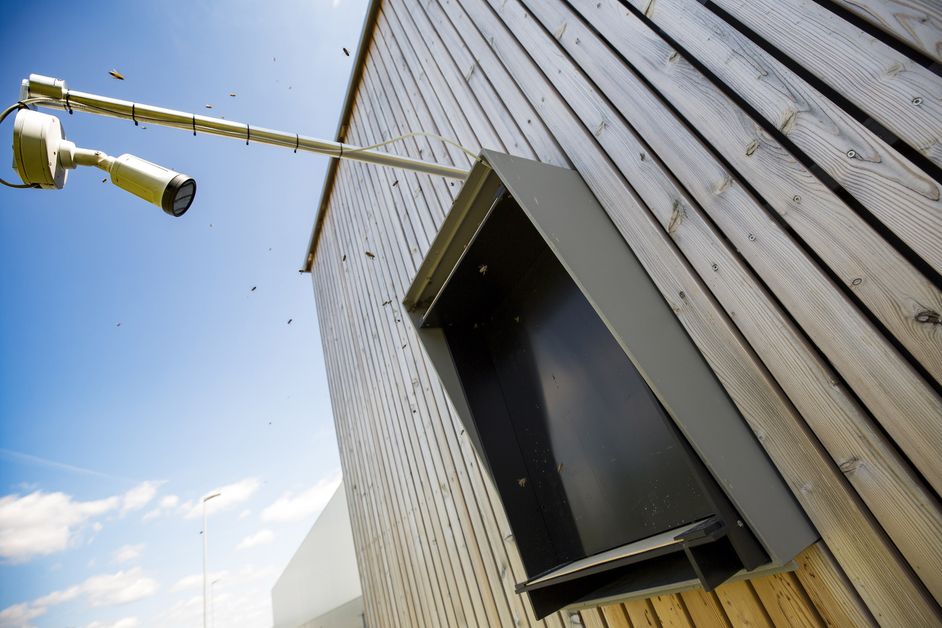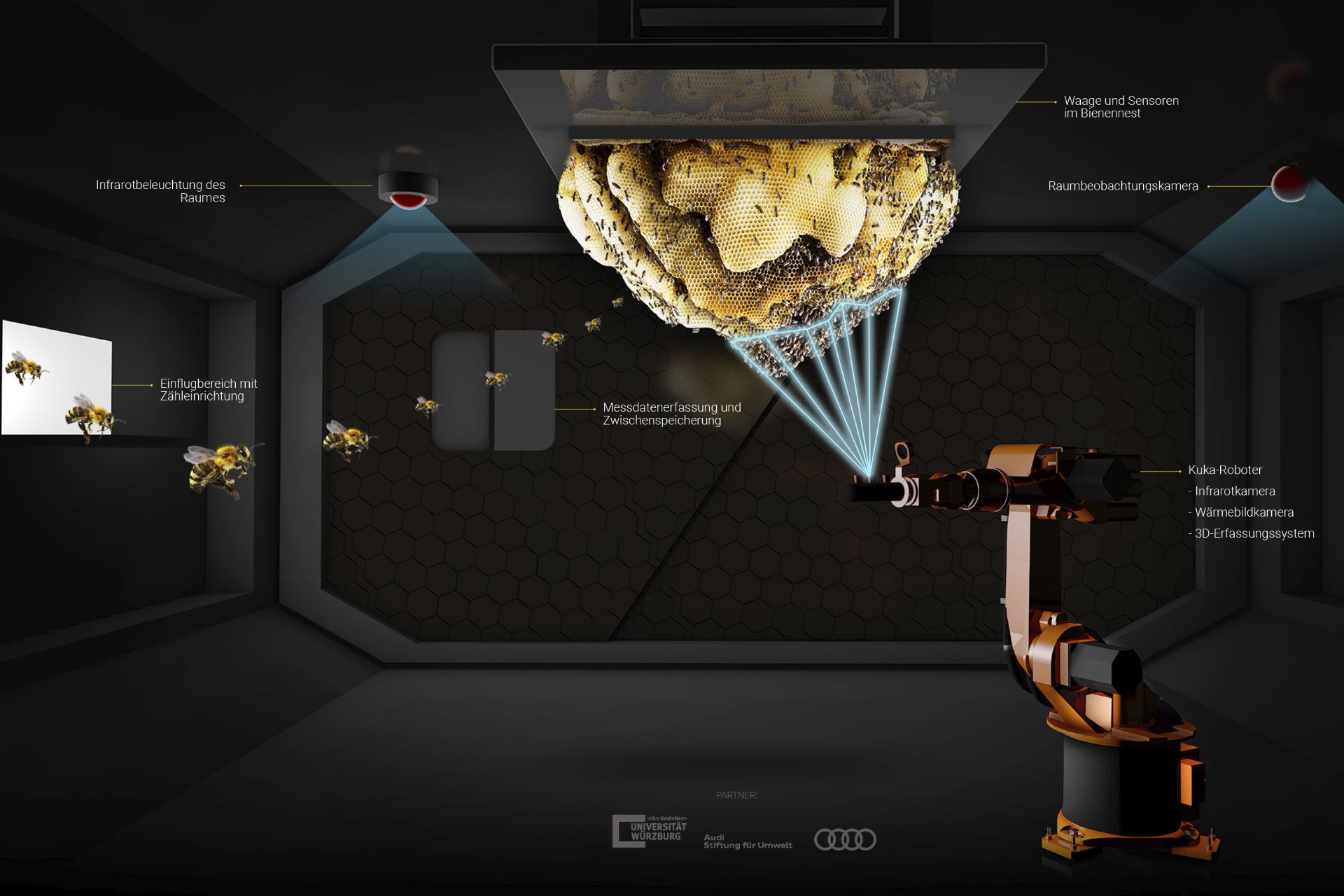High-Tech Beehive – Smart HOBOS

The honey bee: It is not only an lovley Creature, but it also has an important key function in the terrestrial ecosystem. It is vital for food production and, as a result, is the third most important working animal for mankind.
The research project against bee mortality

Inconspicuous but valuable: The high-tech Smart HOBOS beehive provides valuable data for research against bee mortality.
HOBOS („HOneyBee Online Studies“), was an interactive bee mortality research project, which was founded in 2006 by the renowned bee research scientist Prof. Dr. Jürgen Tautz of University Würzburg. From 2015 until its successful completion end of 2018 the project was conducted with the funding of the Audi Environmental Foundation. The core part of the project was the monitoring and analyzing of a living bee colony with digital methods and various technical devices. The collected data and pictures were transferred to an open database/ platform, where they can be retrieved for educational and research purposes.
Automation technology for monitoring the bee colony
Within the cooperation between the HOBOS team and the Audi Environmental Foundation, the high-tech beehive Smart HOBOS was developed and set up in 2016. The high-tech beehive consisted of a freely built bees’ nest and a robot arm with 360 degrees of freedom, which was fitted with infrared and thermal imaging cameras and many other measuring probes. The beehive was placed in a wooden house specifically built for the project on the Audi factory site in Münchsmünster.

Independently divided swarm of bees as data supplier
The estimated 20.000 bees that belonged to the bee colony in Münchsmünster naturally formed out of an already existing bee colony through separation of the swarm. The unique conception of the beehive made it possible for the bees to build their nest undisturbed and in darkness. In addition, the bee researchers benefitted from the conception of the beehive as well, as it enabled them to supervise the behavior of the bees in an undisturbed, realistic environment. It was possible to record the entry of the bees in their beehive and observe the natural construction of the honeycombs under real life conditions.

Live data are available as open source
The live broadcasting of the collected data made it possible that not only the local scientists could access the data and the knowledge about the bees but also bee enthusiasts all over the world.

The project goals of Smart HOBOS
- Obtaining worldwide unique measurement data through the investigation of a freely built honey bee colony, while causing virtually no disturbance to the colony.
- Contribution to species protection by the analysis of the health parameters of bees and the development of new methods of treatment for parasites.
- Offering an internet platform for research-based learning that is available worldwide.
The findings and results of Smart HOBOS
With the project being successfully completed in November 2018 the following findings could be documented:
- Insights in the day-night-cycle of a bee colony (with respect to temperature, volume changes and sleeping patterns)
- Energy efficiency during winter months, because of the bees interval heating
- Reactions to chemical control of varroa mites in the beehive
- International user community (big data analysis by universities, schools, research institutions)
The collected data and information from the bee mortality research is under constant evaluation and once new findings are available, they will be published here and on www.hobos.de
The expertise gained through the project Smart HOBOS will form the basis for the follow-up project we4bee. We4bee started in December 2018, under the sponsorship of the Audi Environmental Foundation. More about we4bee and the big data analysis of the beehive can be found here (German only).